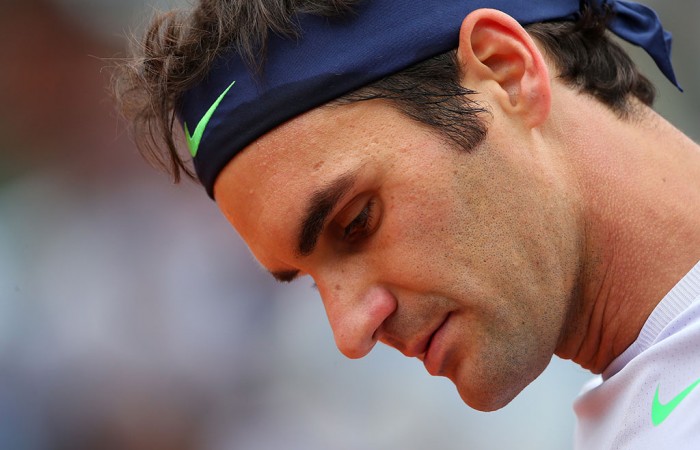Three tips to improve your mental game
You've practiced your strokes, worked on your footwork and formulated a strategy, but how about your mental game? Here's three tips to whip your brain into shape.
Melbourne, Australia, 8 June 2013 | Matt Ahlberg | Australian Tennis Magazine

 Great players spend countless hours on court getting the physical and technical things right. Along the way they will build up some mental strengths as well. However, the mental game needs consistent focused attention if it is to improve and become a strength.
Great players spend countless hours on court getting the physical and technical things right. Along the way they will build up some mental strengths as well. However, the mental game needs consistent focused attention if it is to improve and become a strength.
The higher the standard of tennis, the less it becomes about skill, because the difference in skill between players gets smaller and smaller. As success becomes less about who is more skillful, it will become more about who is mentally stronger.
Here are three simple tips to help you train your mental game.
Setting a goal or focus point for every session is crucial if you are to improve your ability to focus, your intensity in the session and ability to stay process focused.
This helps to improve your ability to focus, as every time you lose focus (which happens to all players at some point) you will have a central point or task to come back to.
In a practical sense this means that when you are upset with a poor shot or worried about what people will think, or stressed about the score, you will be better at taking your focus off these things and bringing it back to something more useful (e.g. “quick feet”). A specific training goal will also help you to work harder to achieve that goal.
A specific focus point or goal is useful in a training session because over time players will get better at focusing on process and less on outcome, which is important during a match.
An outcome (or result/score) focus is rarely helpful during a match because most, if not all, players naturally want to win so thinking more about it isn’t actually that useful.
Time and energy expended on stressing about scores and results increases pressure and decreases performance, so the ability to better control focus is a major benefit for all players.
Focusing on something that you have control over (process/tasks) is of the most use.
Set yourself the task of playing with an intense and professional attitude during a match-play session. To up the stakes, reward certain behaviours (such as positive displays after hitting a winner) and penalise certain behaviours (like throwing racquets). The exact reward and penalties are up to you, but keep them within reason.
Another idea for incorporating the mental game into training sessions is to create situations that test or stretch you mentally. This will give you valuable practice in managing your emotions.
For more tips from the experts on how to improve your game, check out the latest edition of Australian Tennis Magazine.
Matt Ahlberg is a sport psychologist and director of Mental Notes Consulting. For further information, go to mentalnotesconsulting.com.au.